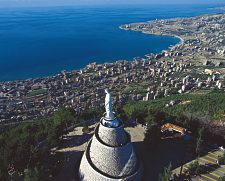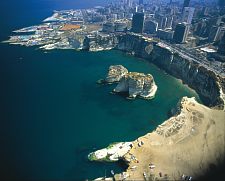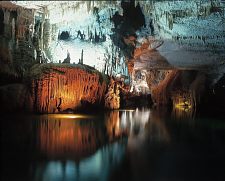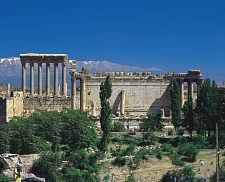|





| |
Syria's Plan
The provocation of Israel
By William Harris* | July 21, 2006
Largely forgotten in the new conflict between Israel and Hezbollah and the
accompanying media frenzy is the heart of the matter — the United
Nations Commission investigating the February 2005 murder of former Lebanese
Prime Minister Rafik Hariri. In his June 2006 report to the
U.N. Security Council, the Belgian head of the commission, Serge Brammertz,
warned: "The focus of the investigation increases the
probability of individuals or groups attempting to execute threats against the
Commission . . . for the purpose of disrupting its mandate."
Brammertz could hardly have come closer to the most likely agenda behind the
launching of the new war in Lebanon.
In brief, the unwavering focus of the inquiry through four reports has been the
Syrian-Lebanese security machine that repressed Lebanon until
the enforced withdrawal of the Syrian army from the country in April 2005. The
most notable feature of Brammertz's low-key June 2006 report
was its stress on the central significance of "full and unconditional
cooperation from Syria," with no other state or organization named in
this regard. The trajectory of the inquiry has been toward an international
tribunal to try suspects, probably by early 2007. Four
Lebanese security chiefs closely associated with the Syrian regime are already
detained at the recommendation of the U.N. Commission.
The strategic implications have been obvious. It is difficult to see how the
Syrian regime of President Bashar al-Assad could survive the
summoning of senior Syrians to a U.N.-sponsored court as suspects, possibly to
face many charges now that the U.N. inquiry is integrating
14 other bombing and murder incidents with the Hariri case. The collapse of
Syria's ruling clique would instantly remove Iran's chief ally in the
Arab world and isolate Hezbollah in Lebanon, cutting its main supply line from
Iran through Damascus. The U.N. inquiry has therefore loomed
as a clear, present, and growing danger to the Iran-Syria-Hezbollah alignment.
The means of escape was equally obvious — Israel. A direct physical attack on
the U.N. Commission, as feared by Serge Brammertz, would
simply produce more evidence and more murder charges. Therefore, the only way to
derail the inquiry was to bait Israel into a military
adventure that would change the political landscape in Lebanon in favor of
Syria's allies, principally President Emile Lahoud and Hezbollah.
Here Syria and Iran had the precedents of the brutal 1993 and 1996 Israeli
bombardments of southern Lebanon, which inflated Hezbollah and
elevated Syria's bargaining capability. When Hezbollah secretary general Hasan
Nasrallah approved the cross-border kidnapping raid that sparked
the current hostilities, he knew full well, as a very shrewd politician, that
the result would be a conflagration. Whatever Hezbollah's autonomy,
it is infantile to suppose that he courted a regional explosion without the
closest involvement of Damascus and Tehran, his partners. A senior
Lebanese "ally of Syria," quoted on July 18 in the leading Lebanese daily al-Nahar,
gave a telling insight when he gloated that "the
wrecking of the formation of the international tribunal" headed "the first
results of the Israeli war on Lebanon."
No doubt Nasrallah has his own agendas. Before the hostilities, Hezbollah's
stock was declining, with extensive Lebanese resentment of
the party's insistence on defying Lebanese state sovereignty by maintaining a
private army in southern Lebanon. Even within the party's
Shia community, a Bekaa Valley religious personality called for a "defense
strategy" against Syria. For the longer term, Hezbollah needed
to fortify its power and popularity in anticipation of the possible loss of its
Syrian strategic depth. By precipitating a conflagration,
Nasrallah has taken over decision-making for war and peace, and life and death,
in Lebanon. This is effectively a coup d'état against the
Lebanese government of prime minister Fouad Sinyora. Hezbollah has
representatives in the government, but the Party of God never gave its
colleagues the slightest inkling that it intended to bring the sky down on their
heads. Presumably such contempt reflects the slogan on a party
billboard in southern Beirut: "We are always right" [daiman andna al-haqq]. It
is hard to deal with people who are "always right."
Hasan Nasrallah is gambling that if he goads Israel enough, the Israelis will
cause such horrendous devastation that the Shia community will
fully close ranks behind the party for its survival, and other Lebanese will not
dare offer criticism. Hence he needs continued escalation, as
reflected in his speech about the battle being only at its beginning and about
"surprises" to come. He appears to exult in death and destruction,
which may be Hezbollah's undoing when the ceasefire comes and the Lebanese
people want to move on. Nasrallah is airily unconcerned about
infrastructural damage, observing: "There is no worry about reconstructing
Lebanon, because we have friends who will help us with
clean money."
While Lebanon burns, the Syrian regime takes care to look as if it is on another
planet. Nonetheless the government mouthpiece al-Thawra gave a
hint of Syria's intimate embroilment when it pronounced on July 14 that Israel
"will have no choice but to fulfill the conditions of the
resistance [Hezbollah], and gambling on any other options is entirely futile."
In a swipe at the U.N. inquiry, al-Thawra also termed the U.N.
and its institutions an American "dummy." President Bush is unwise to speak of
asking Bashar al-Assad to restrain Hezbollah, because this
confirms to Damascus that its room for maneuver is expanding and that it can
expect a "deal." Israel's own indications that it prefers to
preserve Bashar and his mafia apparatus are exceedingly unhelpful, and raise
disturbing questions about Israel's strategic concepts for the
region. As for Iran, the latest statement by the regime's supreme guide Ali
Khamanaei that Hezbollah "will not put aside its weaponry" is an
insult to the territorial sovereignty of the Lebanese state.
Plainly, without a ceasefire the Lebanese government and the international
community cannot move toward implementation of U.N.
Security Council resolution 1559 of September 2004, calling for assertion of
Lebanese state sovereignty and disbandment of private
armies, principally the military wing of Hezbollah. In the meantime, the rising
civilian casualties from Israel's firestorm increase the
likelihood of it serving the goals of Syria and Iran. The anti-Syrian majority
in the Lebanese government may founder under the pressures of
bombardment and bloodshed. This would truncate Lebanon's return to independence
and democracy, and render the U.N. murder inquiry unviable.
Israel risks such outcomes in its pursuit of Hezbollah. Syria's Bashar al-Assad
reportedly told Rafik al-Hariri that he would break Lebanon if
he did not get his way. By indirect methodology, these are the alternatives
presented by Syria and Iran.
* William Harris is a professor of political studies at the University of
Otago in New Zealand. He is author of The New Face of Lebanon: History's Revenge.
|